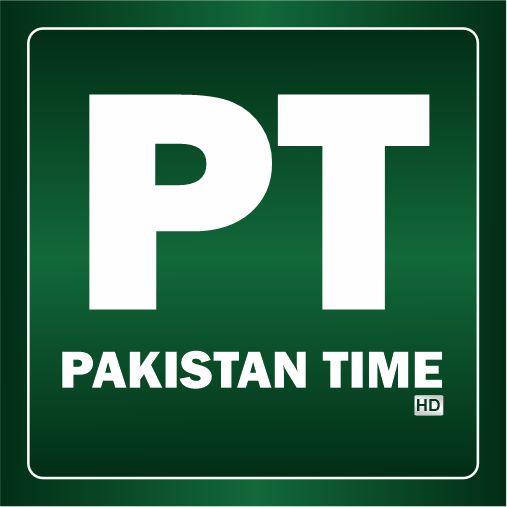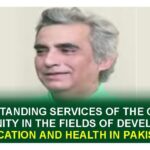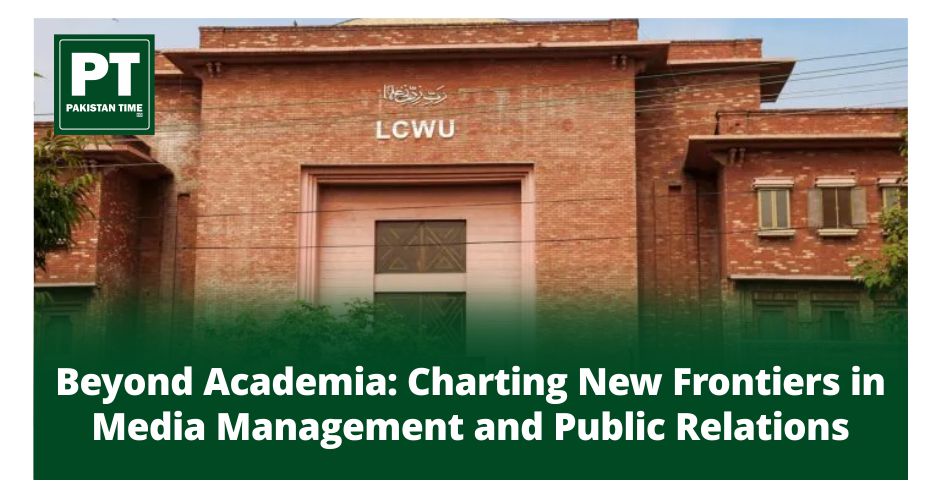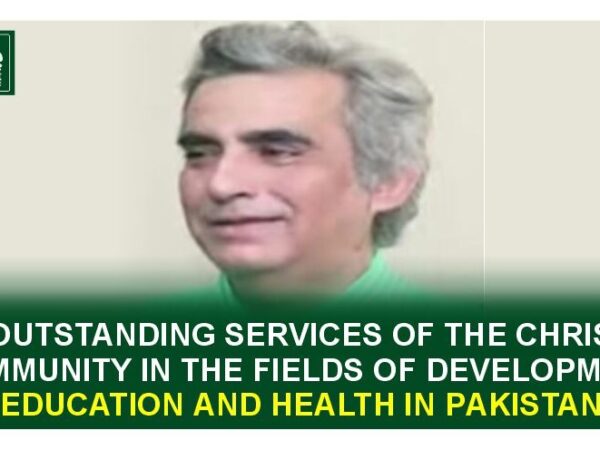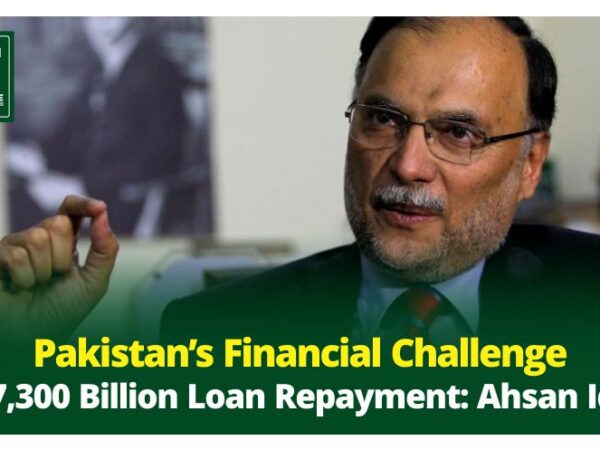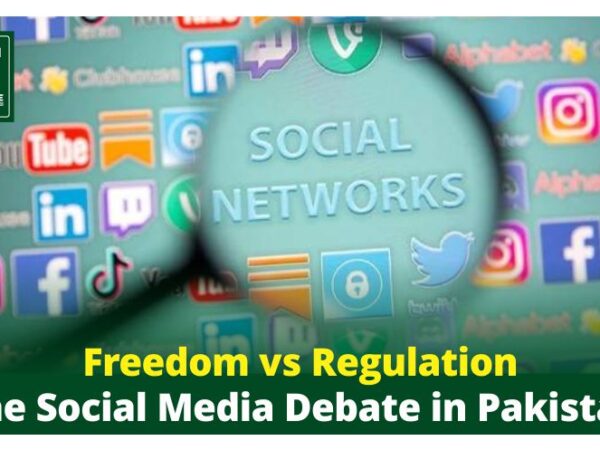Beyond Academia: Charting New Frontiers in Media Management and Public Relations
Dr. Barira Bakhtawar – Head of Public Relations LCW

In the realm of academia and professional endeavors, my journey as a Public Relations Officer at Lahore College for Women University following my Ph.D. in Mass Communication has been met with a spectrum of reactions from colleagues and the public alike. A prevailing notion in Pakistan suggests that individuals with a Ph.D. are primarily committed to research and academia, and it’s uncommon for women to venture into management careers post-Ph.D., deviating from the traditional path of teaching. Years ago, I read an enlightening article by a foreign researcher emphasizing the importance of integrating Ph.D. holders into professional environments and managerial roles. The idea resonated with me, and today, I’m pleased to witness the Punjab Higher Education Commission (PHEC), under the visionary leadership of Chairman Dr. Shahid Muneer and the commendable efforts of Director Coordination Dr. Tanveer Qasim, taking steps to recognize Ph.D. media professionals—a groundbreaking initiative.
Undoubtedly, earning a Ph.D. in Mass Communication is a noteworthy achievement for media professionals, offering a unique blend of research and academic expertise. While many have pursued Mass Communication Ph.D. degrees, a limited number actively engage in journalism and professional media roles. It is crucial to acknowledge the importance of both teaching and practicing journalism to cultivate a holistic understanding of the field. Addressing the ever-evolving global media landscape, particularly in Pakistan, my focus shifts to the dynamic nature of my work post-Ph.D. The proliferation of digital media platforms, increased internet accessibility, and shifting media dissemination avenues prompt a reevaluation of the roles of media managers and public relations professionals. The traditional methods of relying solely on press releases, notes and TV news packages no longer suffice in building an organization’s image on a global scale.
In the modern media context, public relations has transformed into a multifaceted discipline requiring strategic planning and management across traditional and social media platforms. With the advent of social media, PR professionals are no longer confined to traditional practices; they now have the autonomy to produce and disseminate their own media content. This paradigm shift necessitates a redefinition of the PR profession, transforming it from mere news dissemination to a strategic driver for organizational presentation. The shift in the PR landscape emphasizes the vital role of media researchers in this field. Strategic decision-making, grounded in theoretical knowledge and modern research, is imperative for effective image-building. The gap between media professionals and academic researchers must be bridged to advance responsible and sophisticated journalism and media content.
In the context of educational institutions in Pakistan, where PR is often integrated into Mass Communication departments, there is room for improvement. Creating a synergy between Mass Communication and PR departments, while recognizing their independence, can leverage campus radio and TV platforms for effective communication. In my role as a Ph.D. researcher, my focus has gravitated toward the expanding field of Media Management research within Mass Communication. This emerging discipline holds the promise of ushering in a new wave of media researchers into the field of professional management. A prime example of this trans-formative potential can be observed in the field of Public Relations (PR), both in public and private sector organizations spanning educational and non-educational domains. The landscape of PR offices is on the brink of a revolution- a metamorphosis that stems from a deeper understanding of the complex dynamics of communication within and beyond organizational boundaries. Central to this paradigm shift is the recognition that public relations extends far beyond the traditional boundaries of internal and external communication. The scope of communications within modern organizations encompasses a myriad of challenges, demanding astute decision-making, strategic media planning, and the integration of diverse audiences.
To grasp the essence of this evolving process, one must acknowledge the multifaceted nature of contemporary public relations. In my opinion, the PR departments of the future will be tasked with managing relations with various stakeholders, including alumni, students, parents, external organizations, marketing endeavors, branding initiatives, and all facets of internal communication. This expansive role requires a broader perspective, one that encompasses the entirety of organizational communication dynamics. In light of these changing dynamics, I propose that the presence of Ph.Ds. in the field of media holds little significance unless organizations are willing to integrate these accomplished researchers into pivotal roles, such as heading the offices of advancements. These advanced offices, equipped to navigate the diverse landscape of communications, can effectively take charge of all forms of communication, ushering in a new era of strategic and holistic public relations and image building.
As someone who transitioned from radio broadcasting to podcasting after extensive research in the audio media ecosystem, I am a testament to the impact of a strong research background on rational decision-making in media content production. The recognition of experienced journalists teaching at universities further emphasizes the value of blending practical knowledge with academic insights. As a media researcher deeply immersed in this field, I foresee the evolution of public relations unfolding in this manner over time. Forward-thinking organizations that embrace this paradigm shift early on stand to benefit from the innovations in the dynamics of public relations. Conversely, those lagging behind risk suffering the consequences of resisting change in this ever-evolving landscape. The future of public relations lies in the hands of organizations that can adeptly adapt to and capitalize on these trans-formative shifts, ultimately redefining the way we perceive and practice communication within and outside organizational boundaries. PHEC’s recent acknowledgment of media professionals who are Ph.D. degree holders, in collaboration with the Lahore Press Club, stands as a significant stride in bridging the academic-professional gap. The presence of accomplished journalists with Ph.D. credentials at the ceremony underscores the potential for more objective, well-researched, and authentic media content.
PHEC’s forward-thinking approach, led by Dr. Shahid Muneer, signifies a positive shift toward collaboration and inclusion of highly qualified media professionals in academia, decision-making bodies, and professional training. This collaborative effort is instrumental in preparing media professionals for the challenges of fifth-generation warfare, where strategic decision-making is paramount for survival in the evolving media ecosystem. In this article, where I delve into my post-Ph.D. approach in my professional life, I encourage my fellow media colleagues holding a Ph.D. to contemplate actively the notion of how a robust research foundation can serve as a catalyst for revolutionizing their work dynamics. I express my gratitude once more to PHEC for the acknowledgment and for providing us with a platform to engage in discussions on ideas and thought processes, charting a way forward for collective growth. Congratulations to PHEC, Lahore Press Club, and all media professionals who contribute to advancing our collective journey toward a media landscape that thrives on research, collaboration and expertise.
